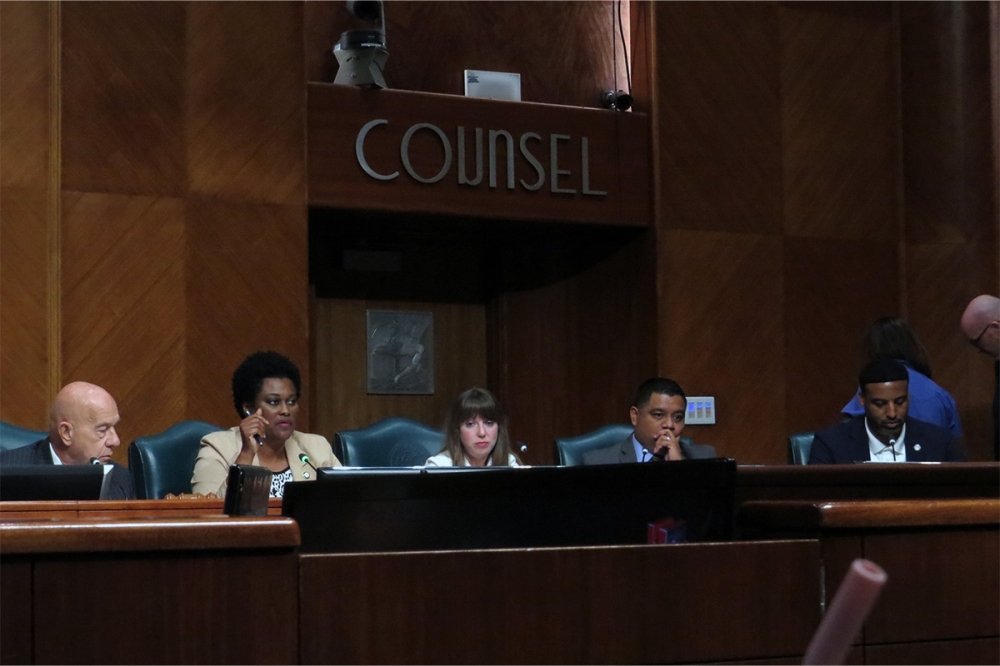Officials with the city’s government relations department laid out numerous bills from the state’s 89th legislative session, which concluded on June 2, that will affect Houston.
The details
Joshua Sanders, the city’s director of intergovernmental relations, said the city’s legislative team tracked more than 1,700 bills that the city had positions on. Sanders said of the bills that were passed this legislative session, the bills that will positively affect the city include:
- Senate Bill 1164: allows officers and homeless outreach teams to take an individual experiencing mental health issues into emergency detention without a warrant if that individual does not recognize their symptoms. Sanders said this could help the city provide mental health services to the city’s homeless population.
- House Bill 3611: increases the penalties for offenders placing bandit signs in the public right of way
- Senate Bill 1620: creates a Texas Forensic Apprenticeship Pilot Program that will increase forensic analyst workforce capacity in Texas. Alexa Aragonez, the deputy director of intergovernmental relations, said Texas is facing a “mass exodus” of forensic analysts.
- House Joint Resolution 7: creates a Texas water fund to support water infrastructure projects in Texas. Sanders said this could provide the city “greater flexibility” when applying for funding from the Texas Water Development Board on needs such as leaky pipes and aging infrastructure.
- House Bill 1584: mandates that electric utilities coordinate with municipalities to maintain and create a list of priority facilities when restoring power. These facilities include hospitals, police stations, fire stations and water treatment plants.
What they’re saying
Mayor Pro Tem Martha Castex-Tatum, who has been fighting to criminalize bandit signs for more than six years, said although it may seem small, this legislation will hopefully deter people from preying on Houston residents. She said the city is working on creating a task force to work on the enforcement.
“I called a sign that said, ‘Earn $4,000 a week,’” Castex-Tatum said. “And that person on the other end of the phone said, ‘First, we need to get your bank account number so you can deposit the check in your bank.’ These signs should not be in our city.”
What else?
During the legislative session, former Chief of Staff Chris Newport and Deputy Chief of Staff Steven David presented the city’s efficiency study to the state’s Delivery of Government Efficiency committee.
The study, conducted by Ernst & Young in 2024, looked at what inefficiencies the city is facing and where they could improve and eliminate waste, according to previous Community Impact reporting. Sanders said this presentation was praised by the DOGE committee.
“The response that we got from the Legislature on the city of Houston’s efforts to look at how we operate, to find efficiencies, to restructure government and to do it in a manner where we weren’t just laying people off, was something that was not only lauded and touted by this committee, but it actually spun off several different pieces of legislation,” Sanders said.
Sanders said some bills would’ve affected the city negatively, but were ultimately defeated. These bills included:
- Senate Bill 2858: This bill would’ve allowed the Texas attorney general the power to sue cities and counties if they enact ordinances that go against state statutes. Cities and counties would’ve also faced their sales and property tax revenue being frozen, according to the bill.
- Senate Bill 1065: This bill would’ve prevented those who hold events at government property from banning firearms. Sanders said sporting events, events held at the Toyota Center, concerts and the rodeo would’ve been affected by this bill.
The city was also able to secure several state appropriations, which are funds allocated by the state government to various agencies, institutions and programs, Sanders said. Funding went toward projects such as:
- $50 million: continuation of Lake Houston dredging, a way to alleviate flooding and the buildup of sand and sediment in Lake Houston
- $17 million: used to support various Houston parks
- $10 million: will be used to purchase 200 police vehicles
